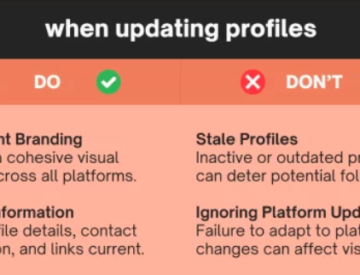Well, February 29th came and went as it does once every four years, and the folks at Facebook made sure this would be a day to remember, launching the long awaited Timeline for brands among other news. For more on this, read Facebook Brand Timelines: 6 Big Changes Every Marketer Needs to Understand.
What is less talked about is how membership growth has slowed down in the past year, even though Facebook is expected to reach the one billion member threshold by end of 2012. Gaming is also losing steam, with a decrease of nearly 50% in the past year in participation, according to a recent study. More importantly, there is increasing skepticism that F-commerce, or transactions via the Facebook platform, will ever “stick” with consumers. Companies such as Gap, J.C. Penney, Nordstrom and GameStop all opened then closed shop on Facebook in the past year. As an analyst at Forrester Research said it best, perhaps selling on Facebook is akin to “trying to sell stuff to people while they’re hanging out with their friends at the bar”.
Travel industry on Facebook
Nevertheless, with over 850 million registered users, Facebook remains the 800-lbs gorilla of the social media sphere. In the travel industry, many seek to reap the benefits from engagement on the platform and to convert fan engagement into sales. Last week, Best Western hotels unveiled its new Facebook booking platform.
Best Western, with its 250,000 fans and now booking capability is thus a pioneer among big hotel chains. Up until now, hotels chains have slick pages and engaged communities, i.e. Fairmont Hotels, Intercontinental Hotels & Resorts, etc. Some promote their loyalty programs, drive contests and promotions, or even crowd-source for product development. But none have booking capabilities on Facebook, yet. Other accommodations such as beach resorts, villa rentals or smaller hotel brands have booking capabilities, but it remains marginal at this point.
Airlines are also active, namely Malaysian Airlines, which was one of the first airlines to provide transactional capabilities directly from Facebook back in 2010. However, a quick look at main US airlines Facebook pages show surprising results: American Airlines has booking capabilities, but none on Southwest airlines or Jetblue pages, two leaders in the social media sphere.
Selling on Facebook is like trying to sell stuff to people while they’re hanging out with their friends at the bar
Finally, a recent blog post on e-Hotelier.com reported mixed results among leading Online Travel Agencies (OTA) Expedia, Priceline, Orbitz and Travelocity, based on study by Compete. Facebook is certainly a key component in the travel decision & purchase funnel, driving referral traffic, helping with aspirational videos and photos, and getting friends and relatives to discuss travel plans. Yet, it’s not necessarily where the transaction materializes.
So, will F-commerce ever stick?
That’s a tough question to answer. But first and foremost, let’s remind ourselves of one capital truth: Facebook is a third-party, it could not and should not replace your own real estate online. You own your web site, just like you own your blog. Priority should be there, above all other online initiatives. Facebook is a big, important piece in the social puzzle of digital strategy, but it’s its prerogative to change the rules of the game as it evolves, as it did yesterday.
Before thinking about a transactional component to your Facebook page, ask yourself a few questions:
– Is your website transactional already? Assuming it is, when was the last time you invested in enhancing it? Is it mobile optimized, including for tablets?
– Who are your fans on Facebook? What drives them to engage with you? Have you asked them lately, or are you relying on your marketing expertise on the matter?
– As an individual, not as marketer… would you book your next hotel stay or resort vacation through Facebook, or would you prefer to stick with known methods, i.e. OTA, hotel site, travel agent ?
Truth be told, I’m not sold at all on the idea of Facebook becoming transactional. I believe it’s using old-school methods, applied to new media. Yet, consumers are also ambivalent about their relationships with brands, as per this recent study by Insight Strategy Group.
What do you think? Should a Facebook page serve mainly as an engagement, PR and traffic referring platform? Or should it encompass a transactional component when applicable? Would love to hear your thoughts in the comments section below.









Leave a Reply